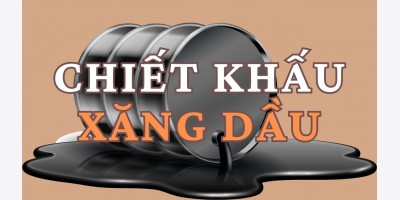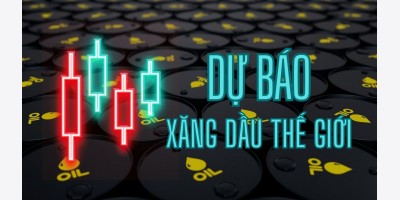Äá»™ng đất ở Nháºt vẫn tạo áp lá»±c lên thị trÆ°á»ng dầu thô
Giá dầu thô trong phiên châu Á sáng nay vẫn Ä‘ang giao Ä‘á»™ng quanh mức thấp nhÆ° cuối phiên Mỹ tối qua do các nhà đầu tÆ° lo ngại Nháºt sẽ giảm tiêu thụ nhiên liệu sau tráºn Ä‘á»™ng đất vừa qua, bất chấp tình hình khủng hoảng chính trị-xã há»™i ở Trung Äông có thể dẫn đến gián Ä‘oạn đối vá»›i nguồn cung.
Tình hình Ä‘á»™ng đất ở Nháºt Ä‘ã để lại nhiá»u tác hại khôn lÆ°á»ng, trong Ä‘ó tình trạng phÆ¡i nhiá»…m phóng xạ hạt nhân có thể làm trệch hÆ°á»›ng phục hồi của ná»n kinh tế đứng thứ ba trên thế giá»›i này, qua Ä‘ó tác Ä‘á»™ng đến sá»± phục hồi của ná»n kinh tế toàn cầu.
Ben Westmore, nhà kinh tế khoáng sản và năng lượng của Ngân hàng National Australia Bank Ltd ở Melbourne nói, thị trÆ°á»ng hàng hóa Ä‘ang bị khủng hoảng, má»i diá»…n biến thị trÆ°á»ng bây giá» chủ yếu táºp trung vào những tác hại từ vụ nổ của các nhà máy Ä‘iện hạt nhân.
Vào lúc 8h17 sáng nay (giá» Việt Nam), giá dầu thô WTI giao kỳ hạn tháng 04 Ä‘ang giao dịch ở mức 97,82 USD/thùng, giảm 30 cent so vá»›i Ä‘óng cá»a phiên giao dịch tối qua.
CÅ©ng kết thúc phiên giao dịch hôm qua, giá dầu thô Brent giao kỳ hạn tháng 04 Ä‘óng cá»a ở mức 110,62 USD/thùng, tăng 2,10 USD/thùng so vá»›i Ä‘óng cá»a phiên liá»n trÆ°á»›c.
Thị trÆ°á»ng cÅ©ng không lấy gì làm lạc quan hÆ¡n sau kết quả công bố trữ lượng xăng tồn của Mỹ giảm 4,17 triệu tấn xuống 225 triệu thùng trong tuần qua, mức thấp nhất kể từ tháng 01.
Trong khi Ä‘ó, tình hình chiến sá»± tại Bahrain Ä‘ã trở lên phức tạp hÆ¡n sau khi lá»±c lượng bảo an của nÆ°á»›c này xịt hÆ¡i cay để giải tán Ä‘ám Ä‘ông biểu tình táºp trung tại Pearl Roundabout thuá»™c thủ Ä‘ô Manama.
Oil Declines on Concerns Japan’s Quake Disaster to Curb Demand
March 17 (Bloomberg) -- Oil fell from a two-day high in New York as concern that damage from Japan’s earthquake will curb demand for crude outweighed speculation unrest in the Middle East may lead to supply disruptions.
Futures dropped as much as 1.4 percent after European Union Energy Commissioner Guenther Oettinger said that Japan’s Fukushima Dai-Ichi power plant “is effectively out of control.” Oil rose as much as 2.5 percent yesterday as escalating violence in Bahrain increased concern that unrest will spill into Saudi Arabia.
“Japan is a big economy, if we do have some sort of nuclear meltdown it will have big macro economic impacts and that could derail the recovery,” Ben Westmore, a minerals and energy economist at National Australia Bank Ltd. in Melbourne, said by telephone today. “The commodity markets are jittery and do remain heavily focused on the impacts of the Japan nuclear power plant situation.”
Crude for April delivery declined as much as $1.38 to $96.60 a barrel in electronic trading on the New York Mercantile Exchange, and was at $97.02 at 10:04a.m. Sydney time. Yesterday, the contract climbed 80 cents, or 0.8 percent, to $97.98. Prices are 17 percent higher than a year ago.
Brent crude for April settlement climbed $2.10, or 1.9 percent, to $110.62 a barrel on the London-based ICE Futures Europe exchange. The April contract expired yesterday. May futures advanced $2.01, or 1.9 percent, to $110.60.
‘Major Disaster’
The United Nations’ nuclear agency plans an emergency meeting to discuss the crisis at Japan’s Fukushima Dai-Ichi power plant as hundreds of cars streamed south of areas hit by last week’s earthquake and tsunami.
“We are somewhere between a disaster and a major disaster,” EU Energy Commissioner Oettinger told a European Parliament committee. “We are very much concerned and deeply distressed by the pictures we are seeing from Japan.”
Oettinger, who represents the European Commission, the 27- nation European Union’s executive arm, said a further deterioration in the situation could lead to deaths.
Japan continues to suffer aftershocks after the 9.0- magnitude earthquake on March 11 shut factories, refineries and power plants. Pressure in the containment chamber of Dai-Ichi’s No. 2 reactor fell “substantially” yesterday, said Masahisa Otsuku, a Tokyo Electric Power Co. nuclear maintenance official.
Unrest in Bahrain
Bahrain security forces used tear gas to drive protesters from their rallying point at the central Pearl Roundabout in the capital Manama. The mostly Shiite Muslim demonstrators fled into nearby backstreets as military vehicles and helicopters were deployed in the area. The stock market suspended trading.
A state of emergency was declared March 15 as a second contingent of troops from Gulf nations poured into the kingdom. About 1,000 people in Saudi Arabia’s eastern city of al-Qatif defied a ban on demonstrations and protested peacefully to demand the country’s troops end their incursion into Bahrain.
Libyan leader Muammar Qaddafi brought the war for the first time to the rebel capital, with three of his warplanes bombing Benghazi airport before being chased off by anti-aircraft fire.
Oil extended gains yesterday after the Energy Department reported that gasoline inventories tumbled 4.17 million barrels to 225 million last week, the lowest since January. Supplies were forecast to drop 1.5 million barrels, according to the median of 16 analyst responses in a Bloomberg News survey.








